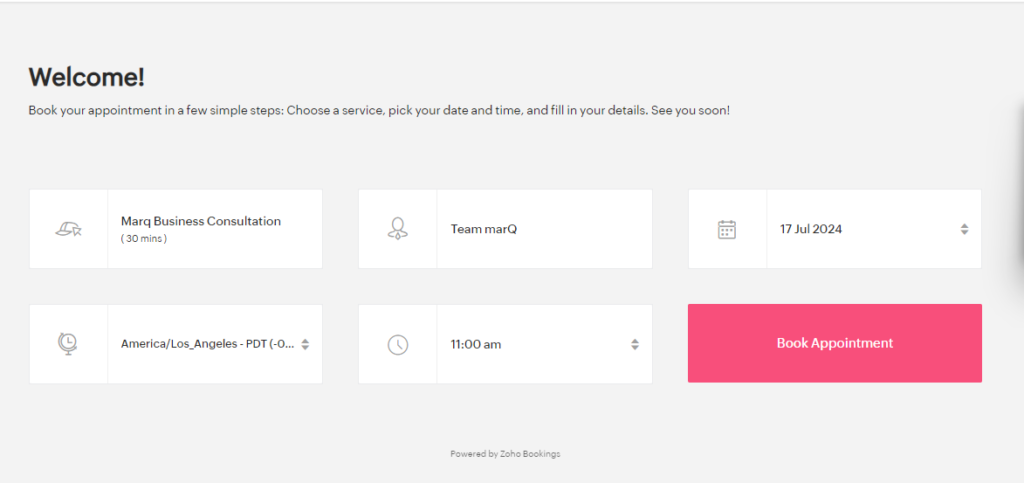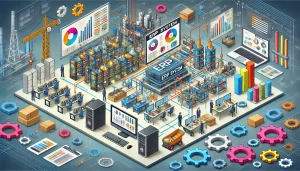Mastering ERP Project Management: A Comprehensive Guide
TABLE OF CONTENTS
- Introduction
- Understanding ERP Project Management
- Importance of ERP Project Management
- Key Phases in ERP Project Management
- ERP Project Planning
- Implementation Timeline
- Resource Allocation in ERP Projects
- Risk Management in ERP Projects
- Project Tracking and Reporting
- Best Practices for ERP Project Management
- Common Challenges in ERP Projects
- Case Studies of Successful ERP Projects
- Future Trends in ERP Project Management
- Conclusion
- FAQs
Introduction
Managing an ERP project is like orchestrating a symphony, where every element must be perfectly aligned to create harmony. ERP project management involves careful planning, precise execution, and continuous monitoring to ensure the successful deployment of enterprise resource planning software (ERP). This guide will walk you through the essential aspects of ERP project management, helping you navigate the complexities and achieve seamless integration.

Understanding Business Management Solutions
ERP project management is the process of overseeing the planning, execution, and completion of an ERP implementation. It encompasses defining project goals, assembling a project team, and coordinating various activities to ensure the ERP system integrates smoothly with existing business processes.
IImportance of ERP Project Management
Effective ERP project management is crucial for several reasons. It minimizes disruptions to business operations, ensures that the project stays on track and within budget, and maximizes the return on investment. By managing resources efficiently and addressing potential risks, businesses can achieve a successful ERP implementation that enhances productivity and efficiency.
Key Phases in ERP Project Management
ERP project management can be broken down into several key phases:
Initiation
In this phase, the project’s scope, objectives, and feasibility are defined. It includes securing executive sponsorship and assembling the project team.
Planning
Detailed project planning involves creating a roadmap that outlines tasks, timelines, and resources needed. It’s crucial for setting clear expectations and establishing a solid foundation for the project.
Execution
During execution, the project plan is put into action. This involves software configuration, customization, and integration with existing systems.
Monitoring and Controlling
This phase involves tracking the project’s progress against the plan, identifying any deviations, and making necessary adjustments to keep the project on track.
Closure
The final phase includes completing all project activities, obtaining stakeholder approval, and conducting a post-implementation review to identify lessons learned.

CLAIM YOUR MARKETING STRATEGY SESSION TODAY!
WE REVIEW YOUR MARKETING EFFORTS & SHOW YOU AREAS TO IMPROVE.
ERP Project Planning
Defining Objectives
Start by clearly defining what you aim to achieve with the ERP implementation. These objectives will guide the entire project.
Assembling the Project Team
Choose a project manager and team members with the right skills and experience. Ensure clear roles and responsibilities are defined.
Creating a Project Plan
Develop a detailed project plan that includes timelines, milestones, and resource allocation. A well-structured plan is the blueprint for successful ERP project management.
Implementation Timeline
Creating a realistic implementation timeline is crucial. It should account for each phase of the project, including planning, execution, and testing. Here’s a typical timeline for an ERP project:
Initial Planning (1-2 months)
Design and Configuration (3-6 months)
Testing and Training (2-4 months)
Go-Live and Support (1-2 months)
Adjust the timeline based on the complexity of your ERP system and business requirements.
Resource Allocation in ERP Projects
Identifying Resources
Identify the resources needed, including personnel, hardware, and software. Ensure that each resource is available when required.
Budget Management
Allocate a budget for the project and monitor spending closely to avoid overruns. Include a contingency budget for unexpected expenses.
Training and Development
Invest in training for your team to ensure they are equipped to use the new ERP system effectively.
Risk Management in ERP Projects
Identifying Risks
List potential risks that could impact the project, such as scope creep, budget overruns, or technical issues.
Developing Mitigation Strategies
Create strategies to mitigate identified risks. For example, conducting regular reviews can help detect issues early and address them promptly.
Continuous Monitoring
Continuously monitor risks throughout the project and adjust mitigation strategies as needed.
Project Tracking and Reporting
Setting Up Tracking Tools
Use project management tools to track progress and identify any deviations from the plan. Tools like Gantt charts and dashboards provide real-time visibility.
Regular Reporting
Generate regular reports to keep stakeholders informed about the project’s status. Transparency helps in managing expectations and making informed decisions.
Adjusting Plans
Be prepared to adjust the project plan based on tracking data and feedback. Flexibility is key to overcoming challenges.
Best Practices for ERP Project Management
Clear Communication
Maintain clear and open communication with all stakeholders. Regular updates and meetings ensure everyone is aligned.
Stakeholder Engagement
Engage stakeholders early and often. Their input and buy-in are crucial for project success.
Continuous Improvement
Adopt a mindset of continuous improvement. Learn from each phase and apply lessons learned to improve processes.

CLAIM YOUR MARKETING STRATEGY SESSION TODAY!
WE REVIEW YOUR MARKETING EFFORTS & SHOW YOU AREAS TO IMPROVE.
Common Challenges in ERP Projects
Resistance to Change
Employees may resist the new system. Address this through effective change management strategies and training.
Data Migration Issues
Data migration can be complex. Ensure data is clean, accurate, and complete before migration.
Budget Overruns
Careful budget planning and monitoring are essential to avoid overruns. Include a contingency budget for unforeseen expenses.
Case Studies of Successful ERP Projects
Case Study: ABC Manufacturing
ABC Manufacturing streamlined their operations and improved productivity by implementing SAP ERP, resulting in a 20% increase in efficiency.
Case Study: XYZ Retail
XYZ Retail reduced inventory costs by 15% and improved customer satisfaction through Oracle NetSuite ERP implementation.
Case Study: LMN Services
LMN Services enhanced their financial reporting accuracy and reduced manual errors by 30% with Microsoft Dynamics 365.
Future Trends in ERP Project Management
AI and Machine Learning
Integrating AI and machine learning can enhance predictive analytics and automate routine tasks within ERP systems.
Cloud-Based ERP
Cloud-based ERP solutions offer scalability, flexibility, and reduced upfront costs, making them increasingly popular.
Mobile Accessibility
With the rise of remote work, mobile access to ERP systems is becoming essential, allowing employees to manage tasks on the go.
Conclusion
ERP project management is a complex but rewarding endeavor. By carefully planning, executing, and monitoring your ERP implementation, you can achieve significant improvements in efficiency and productivity. Remember to engage stakeholders, manage risks, and remain flexible throughout the process. With the right approach, your ERP project can transform your business operations.
For more information on ERP project management and integration services, visit MARQ Networks.
FAQs
ERP project management involves overseeing the planning, execution, and completion of an ERP implementation, ensuring it meets business goals.
The duration varies, but typical ERP projects can take anywhere from 6 months to 2 years, depending on the complexity and scope.
Key phases include initiation, planning, execution, monitoring and controlling, and closure.
Identify potential risks, develop mitigation strategies, and continuously monitor and adjust plans as needed.
Engaging stakeholders ensures their input and buy-in, which is crucial for the project’s success and smooth implementation.
ABOUT THE AUTHOR:

Syeda Hufsa
Syeda Hufsa is the Content Creation Specialist at marQ Networks. Syeda Hufsa loves writing both personally and professionally. She graduated from reupdated university field of Computer science.



